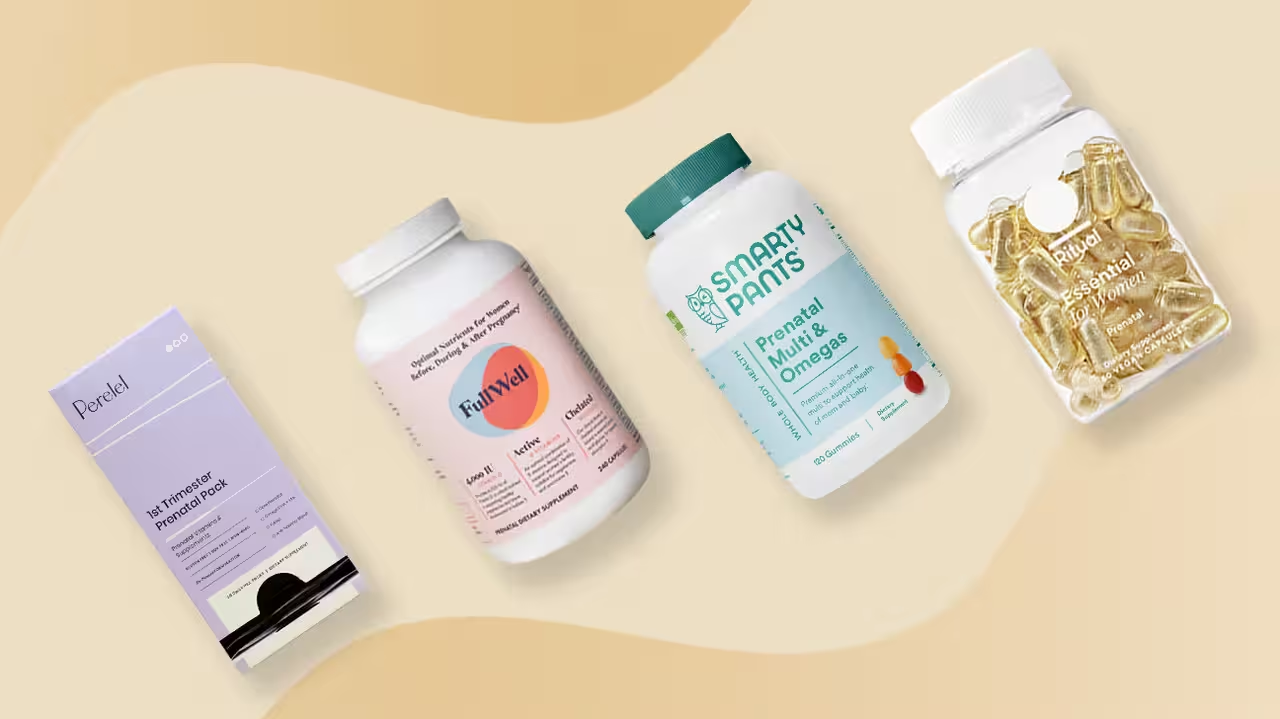Most people are aware of the significance of taking prenatal vitamins to provide your body with the nutrition it needs to create a healthy baby throughout your pregnancy. When, though, should you begin taking one? Do they increase your fertility? If you're not pregnant, can you take prenatal vitamins without being pregnant? Even if you don't want to become pregnant, there are many things to learn about prenatal vitamins before you even start your journey. Let's examine this.
How do prenatal vitamins support pregnancy?

Although eating a healthy, well-balanced diet is the best way to receive most nutrients, several nutrients are often underconsumed in the United States. Daily prenatal vitamin consumption aids in supplementing diets when necessary.
It has been demonstrated that taking these vitamin supplements lowers the chance of miscarriage and lowers the incidence of low birth weight babies. Additionally, it aids in the early-pregnancy development of a few of the baby's organ systems.
You Might Also Like: Can You Get Pregnant From Precum
What is the ideal time to begin taking a prenatal vitamin?
Prenatal vitamins should ideally be taken every day at least one month before trying to conceive. Significant brain or spinal birth abnormalities can develop in a newborn as early as 3–4 weeks after conception, which is before most women even realize they are carrying a child.
As soon as you find out you are pregnant, begin taking a prenatal vitamin if you were unaware of its need before getting pregnant.
Is it possible to take a prenatal vitamin if you are not expecting?
Indeed! In actuality, you ought to be using a pregnancy supplement if:
You're trying hard to get pregnant, OR
You are a person with an open uterus who does not use any form of contraception.
The unintended pregnancy rate in the US is over 50%. can you take prenatal vitamins without being pregnant, even if you're not trying, it's a good idea to be taking a prenatal vitamin because birth abnormalities may arise so early in pregnancy.
Are you more fertile if you take prenatal vitamins?
There is no proof that taking a prenatal vitamin would improve your ability to conceive. In order to ensure that you have enough of the vitamins you need when you conceive and to enable you to have the best pregnancy possible, taking prenatal vitamins is intended to support a balanced diet.
After having birth, how long should you continue taking prenatal vitamins?
Throughout your pregnancy and the postpartum phase, you should keep taking your daily prenatal vitamin, particularly if you are nursing. After giving birth, your body goes through a few months of postpartum recovery, during which it regains its pre-pregnancy form.
You Might Also Like: Do Babies Fart in the Womb
Prenatal vitamins can be taken as long as you are nursing to ensure your baby receives the nutrients they need as they develop, as at this time their main source of nourishment may be your milk.
What qualities need to a prenatal vitamin have?

For a newborn to develop normally in some regions and to avoid birth abnormalities, certain vitamins are essential. Your body need additional iron to help create blood and carry oxygen to the fetus, as well as extra folic acid to avoid birth abnormalities of the brain and spine. It is important to supplement with additional vitamins.
The following vitamins are advised by the American College of Obstetricians and Gynecologists (ACOG) in the designated daily levels through food and/or supplementation prior to, during.
To ensure that you are getting the required daily levels of these vitamins, you should seek for a prenatal vitamin that has enough of them in the ingredients to supplement what you are already eating.
As usual, get details from your OB/GYN; nevertheless, depending on the patient's situation, advice may change. For instance, it can be difficult to obtain the recommended 600 mg of folic acid from diet alone. Therefore, we usually advise taking a prenatal vitamin that has at least 400 mg of folic acid. However, it is advised to take a higher amount of folic acid (4 mg) as a supplement if you have a family history of neural tube defects or if you have previously had a child with one.
How do you find a good prenatal vitamin?
The most crucial thing is to select a daily prenatal vitamin that you can take. You might want to think about going with a gummy or smaller tablet if you have trouble with nausea or taking medications. Notably, gummies don't include iron, so you'll need to take an additional iron supplement or make sure your diet has adequate iron.
Common brands available at your neighborhood drugstore or supermarket are One-a-day, Olly, Smartypants, and Nature Made. The majority of generic prenatal vitamins are comparable to and superior than branded brands.
Other prenatal vitamins on the market, such Modern Fertility, Ritual, and Perelel, are only available online with subscription purchases. Although these are typically more costly, they typically include less chemical colors and colorants as additions. They are also simpler for your body to absorb since they include folate in the physiologically active form of methylfolate.
To find out which prenatal vitamin could be ideal for you, look at the nutrients in your prenatal vitamin and compare them to the recommended amounts. You can also look at your diet. You may always ask your source to confirm that the one you select has the appropriate ratios of nutrients to suit your requirements.
What happens if you overlook taking your pregnancy vitamin?

It's OK to overlook taking your prenatal vitamin; simply take it as directed the following day. The next day, you shouldn't take twice as much or more than the suggested dosage since it could contain too much of some vitamin components.
If you're not attempting to get pregnant, is it possible to strengthen your hair and nails by taking a prenatal vitamin instead of a regular multivitamin?
The important thing is to make sure you are just taking the recommended amount of each supplement; for example, you should NOT take an extra multivitamin if you are already taking a prenatal vitamin. As always, if you're trying to take higher dosages of any vitamin, speak with a doctor first.








